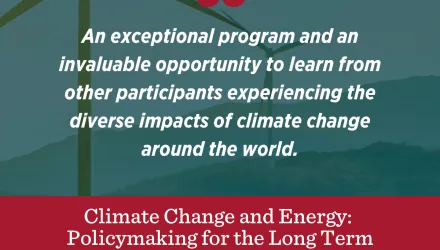Abstract
The role of developing country commitments and actions to mitigate greenhouse gas emissions is central to worldwide progress in reducing the risks of anthropogenic climate change. Industrialized-country governments and publics are increasingly concerned that their emissions reduction commitments are unrequited by action in some of the world's largest emitters, especially India and China. Developing countries respond by pointing to the historical responsibility of the global North and stressing their desire to avoid measures that could undermine economic development. This paper offers a proposal for partially resolving this impasse by enhancing existing mechanisms for greenhouse gas offsets, which allow rich countries to finance developing country actions and thereby transfer resources to poorer ones. We frame this proposal in terms of meeting the varying objectives of industrialized and developing countries. The Clean Development Mechanism is the main existing vehicle for offsets but is plagued by high transaction costs—a function largely of its strict accounting rules—and allows for only a narrow set of project-based activities. We call for less emphasis on ton-for-ton accounting and increased reliance on a broader range of activities that can contribute to reduced emissions and adaptation. We also recommend establishing a minimum percentage of developed-country commitments that should be met by funding developing-country actions. Our proposal seeks to incentivize long-term investments and policy changes that address climate change, rather than short-term measures designed to meet largely artificial targets. We identify the elements of our enhanced offsets mechanism that would have to be negotiated by governments and suggest how existing international institutions might be adapted to manage the necessary tasks.
Keeler, Andrew G. and Alexander Thompson. “Industrialized-Country Mitigation Policy and Resource Transfers to Developing Countries: Improving and Expanding Greenhouse Gas Offsets.” Harvard Project on Climate Agreements, September 2008



